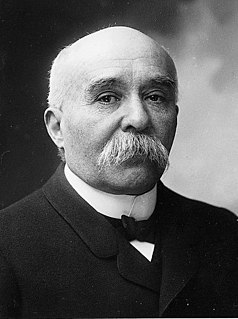A Quote by Voltaire
The sovereign is called a tyrant who knows no laws but his caprice.
Related Quotes
Julian was not insensible of the advantages of freedom. From his studies he had imbibed the spirit of ancient sages and heroes; his life and fortunes had depended on the caprice of a tyrant; and, when he ascended the throne, his pride was sometimes mortified by the reflection that the slaves who would not dare to censure his defects were not worthy to applaud his virtues.
A man like me cannot live without a hobby-horse, a consuming passion - in Schiller's words a tyrant. I have found my tyrant, and in his service I know no limits. My tyrant is psychology. It has always been my distant, beckoning goal and now since I have hit upon the neuroses, it has come so much the nearer.
Let it not, therefore, be said that the Sovereign is not subject to the laws of his State; since the contrary is a true proposition of the right of nations, which flattery has sometimes attacked but good princes have always defended as the tutelary divinity of their dominions. How much more legitimate is it to say with the wise Plato, that the perfect felicity of a kingdom consists in the obedience of subjects to their prince, and of the prince to the laws, and in the laws being just and constantly directed to the public good!
A man’s ignorance sometimes is not only useful, but beautiful - while his knowledge, so called, is oftentimes worse than useless, besides being ugly. Which is the best man to deal with - he who knows nothing about a subject, and, what is extremely rare, knows that he knows nothing, or he who really knows something about it, but thinks that he knows all?
God's love is so perfect that He lovingly requires us to obey His commandments because He knows that only through obedience to His laws can we become perfect, as He is. For this reason, God's anger and His wrath are not a contradiction of His love but an evidence of His love. Every parent knows that you can love a child totally and completely while still being creatively angry and disappointed at that child's self-defeating behavior.
The members of a body-politic call it "the state" when it is passive, "the sovereign" when it is active, and a "power" when they compare it with others of its kind. Collectively they use the title "people," and they refer to one another individually as "citizens" when speaking of their participation in the authority of the sovereign, and as "subjects" when speaking of their subordination to the laws of the state.




































